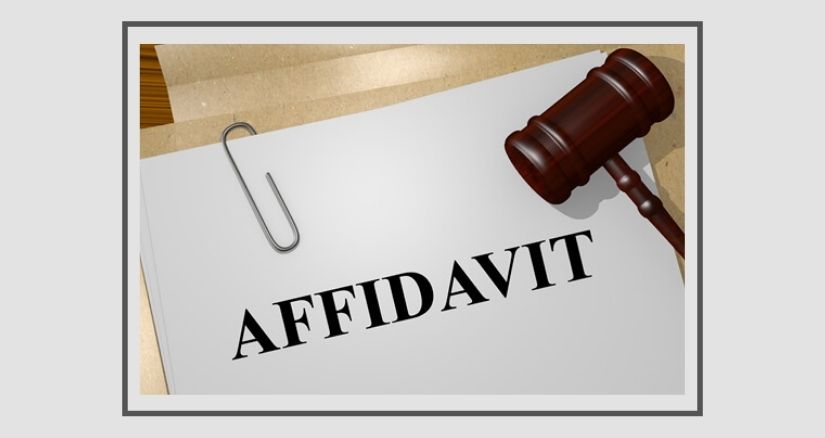An affidavit is a type of verified statement or showing. In other words, it contains a verification, which means that it is made under oath on penalty of perjury, which serves as evidence for its integrity and is required in court proceedings. Affidavits in Mumbai may be written in the first or third person, depending on who drafted the document. The document's parts are typical as follows: a commencement which identifies the "affiant of truth," generally stating that everything in it is true, under penalty of perjury, fine, or imprisonment, an attestation clause, usually a jurat, at the end certifying that the affiant made oath and the date; signatures of the author and witness. If an affidavit is notarized or authenticated, it will also include a caption with a venue and title about judicial proceedings. In some cases, an introductory clause, called a preamble, is added, attesting that the affiant personally appeared before the authenticating authority. In Indian law, although an affidavit may be taken as proof of the facts stated therein, the courts have no jurisdiction to admit evidence by way of Affidavit. An affidavit is not treated as "evidence" within the meaning of Section 3 of the Evidence Act. However, it was held by the Supreme Court that an affidavit could be used as evidence only if the court so orders for sufficient reasons, namely, the right of the opposite party to have the deponent produced for cross-examination. An affidavit is a sworn statement that is in writing. Affidavits are usually used in a court or negotiations. They must be notarized, and you must declare that the facts contained in an affidavit are true and correct. When you notarize an affidavit, you must also sign it in front of witnesses.

Affidavits
Frequently Asked Questions
By various online portals, an Individual can apply online for Affidavit but first, an individual needs to choose an Affidavit You need from the list provided on the portal.
To obtain an affidavit in Mumbai, one must execute or swear his or her Affidavit in front of an approved notary. The Affidavit must be made on "non-judicial stamp paper.
If you want to change Name in an Affidavit in Mumbai, then draft the Affidavit by providing the details of the old Name and new Name. Make the Affidavit attest and sealed by the Notary Public.
There are various types of Affidavit in Mumbai like Duplicate driving license, Marriage affidavit, Proof of Income, Notarized Affidavit, Name change affidavit, Change of signature, Date of Birth proof, Domicile affidavit, Education loan affidavit, LPG connection affidavit, No criminal record and Many more.
Affidavit of Residence is typically used and required for various legal issues. For citizens who have no document for address proof, an affidavit of Residence is needed to prove that they reside in the address they claim.
- All Service
- Pan Card
- NRI Pan Card
- Udyam Aadhar
- GST Number
- Gazette Name Change
- Gumasta License
- ITR Filling
- Food License
- Private Ltd \ LLP
- Logo Registration
- Trade Mark
- Affidavits
- Senior Citizen Card
- Income Certificate
- Domicile
- Aadhar Pan Card Link
- Ayushman Bharat Card
- Voter Card
- Passport
- Aadhar Card Address Change
